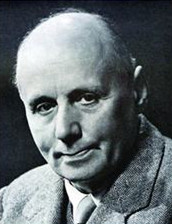On the Value of Philosophy
Issue date:2019-05-14About the author: Mojia Shen was selected to attend United World College - USA for high school. She then graduated from Wellesley College with a major in Computer Science, minors in Philosophy and Psychology. She also studied at Oxford University. She is now a Product Manager at Google.
When I was in high school, one of my classmates, in his monotone voice, used to cite all kinds of Marxist philosophers. At the time, this one school of political philosophy did not catch my interest and I shut the door to the whole of philosophy.
When I entered college, I told myself I would take a philosophy class right before I graduate. In everyone’s eyes, it’s the perfect liberal art subject, but I did not want to nor did I have the courage to take it sooner. The reasoning being first, it is a “useless” subject for job and internship; second, it seems too much work for my average-quality brain (not a chill fifth or sixth subject to take); third, my reading and writing sucked even more back then. It did not seem like a subject I would excel in.
Oxford, to my surprise, revived my interest in philosophy sooner than I anticipated. During study-abroad, I attempted a philosophy class. I remember asking my tutor what the point of learning philosophy was and he proceeded to go into a long spiel. I only remembered something about “critical thinking” but that’s too wishy-washy of a reason back then. The class was sort of average and I could not care about “philosophy of logic and language” any less. Just when I was about to abandon philosophy once and for all, I started meeting some philosophy students, philosophy fanatics in my opinion and got invited to a small weekly philosophy lunch. Most of the time I was just sitting there like an idiot. But I enjoyed hanging out with people who are smarter than me, so I kept going. It was funny to me back then how they were so eager to explain some creepy thought experiments to me whenever I asked. These people are totally in love with the subject.
As my familiarity with the subject grew, I signed up for three philosophy classes in my senior year. I graduated college having taken eight philosophy classes. I started begging people to talk philosophy with me and basically lived outside professors’ offices. I became one of those fanatics. If there is one regret in college, it’s that I didn’t major in philosophy. I know I wouldn’t have because the idea of studying philosophy always raised eyebrows among Chinese parents. The value of a subject is measured through its utility. In their eyes, philosophy is a useless subject. It doesn’t get you jobs and internships. It’s also a stereotypical “white people” subject, not a subject Chinese students can excel at. “Critical thinking” was not part of the curriculum we were brought up with. Lastly, there is a general sentiment that philosophy is boring and (ridiculous enough) that girls shouldn't study philosophy because outsmarting everyone doesn't make you marriage material. I wish I wasn’t so brain-washed by this nonsense! Even if some of it is true, we shouldn’t perpetuate stereotypes, but change them. I hope this post can demystify philosophy and make more people be open to this life-changing subject. Here are four reasons why philosophy is worth everyone’s time and it would be a shame to graduate without exploring it.
Learn to Read and Write
One of the goals of college is to make students adequate readers and writers. Philosophy is one of the best subjects that help achieve this goal. I used to believe that because I wasn’t good at reading and writing, I wasn’t going to take classes that require those skills. I didn’t understand that one wasn’t born to be good at reading and writing! I will never be good at them if I didn’t give myself a fair chance to practice. During a talk my club hosted, an alumna said she majored in English precisely because she was bad at it. She was getting C's and one of her English professors even asked her to change major. Nevertheless, she persisted and told us that learning how to write was one of the greatest treasures she gathered from college. To learn, we need the attitude for learning, which requires being humble and admitting what we do not know.
Philosophy classes challenge students to become strong readers and writers. From reading 20–50 pages per week for introductory classes to 200–300 pages for advanced, you would be hard pressed to find someone who is not a good reader after a few classes. Philosophy texts are notoriously hard to read, which teaches students to slow down and read over and over again to savor the deeper meaning.
Writing philosophy essays shape one into a clear and logical writer. Philosophical writing is extremely logical, almost like a mathematical proof or lines of code. Words are just a way to express logic. The writing should be so precise that even a single unnecessary sentence is unacceptable. Such brevity and precision are exemplified in the introductory paragraph where one is only allowed to state one’s position and how one is going to support it throughout the essay. I did not realize how important writing clearly is until I started interning as a product manager. 80% of my role is to convince others of the right plan forward. What other skills are more helpful than being able to convey ideas powerfully?
The Epiphany of Critical Thinking
Liberal arts colleges brand themselves as the place where students learn to critically think, but classes aren’t equally successful at achieving this goal. Some classes are more informational while others are more evaluative. The evaluative ones are the best at training critical thinkers. After taking classes from pretty much all disciplines, philosophy stands out as the epiphany of critical thinking.

So what is critical thinking? The underlying idea of critical thinking is to question everything one sees and hears instead of taking things at face value. To arrive at the right conclusion, one needs to seek evidence from the opposing sides and fairly evaluate the strength of all sides. This practice is what makes Western education so attractive. The origin of such an attitude is the philosophical school of Skepticism. What skeptics do is refuting everything other people have said. They show that when there is a strong argument, there is always a counter-argument equally as strong. Therefore, one should suspend judgment and keep seeking evidence. This ability to think critically is especially important in the age where Google makes information readily available. Searching “Is being a vegetarian good for you?” and “Is being a vegetarian bad or you?” gives the same number of search results. What Google cannot help you do is make a rational decision for you. If one does not evaluate but simply accept every information presented, one can be convinced of anything, even that the Earth is flat!
What philosophy teaches is precisely the ability to dig deeper into things. We lay out the argument in class and attack the underlying logic and each and every premise. When we propose an argument, we need to anticipate every possible objection and how to reply to them. This is the secret weapon to never losing one’s livelihood in the era of artificial intelligence. No other subject enables this power better than philosophy.
Revive Curiosity
When I entered college, I was not very curious. Learning had always been a task and I learn because I have to graduate. I remembered following the adults asking a million “whys” when I was young, but also remembered that I barely questioned “why” since middle school. Sadly, people who don’t ask “whys” cannot enjoy learning.
What philosophy does is asking the “why” questions. It asks really big and fundamental questions. Among those, there are: Does God exist?Do/Can we know anything at all? What’s the meaning of life? To seek answers to these questions, one needs to keep asking “why” until the first principles. I also see numerous subjects coming together in philosophy. For example, the philosophy of mind combined knowledge from psychology, neuroscience, computer science, and even physics. All these subjects didn’t exist back in Ancient Greece, only philosophers asking really big questions. These subjects gradually branched out from philosophy. Being able to ask the “whys”s and see different disciplines of knowledge coming together help revive one’s curiosity.
Contemplate Life’s Biggest Questions
Socrates famously said, “An unexamined life is not worth living”. To live a good life, one has to constantly examine the choices one is making. In other words, one has to have clarity in life. It’s interesting that people who are going through mid-life crisis or existential crisis in college turn to philosophy (or religion). It’s because these disciplines aim to answer the most existential questions: Who am I? Why am I alive? Does my life have any meaning? What’s after death? What makes life worth living? What is a good life?
These are the questions philosophers contemplate since the beginning of time. However, we don’t study philosophy to get answers, we study philosophy to learn the tools to seek answers ourselves. The ultimate thing we wish for ourselves and our parents wish for us is always - a good life. Start to contemplate what that might mean to one at a young age help one arrive at an answer sooner.

I hope I have succeeded in persuading you to try out a philosophy class. Introductory classes on moral philosophy, epistemology or metaphysics are all good choices. Don’t take logic as a first class (like I did); you won’t get a taste of what philosophical inquiries are. There are so many subjects within philosophy and it’s crucial that one starts with what is interesting to them personally. For those who are not in university, I recommend listening to “Philosophize This” podcast by Stephen West from the first episode or “Death” (Yale OpenCourse) by Shelly Keagan. “Sophie’s World” is good for interest building. “The Problems of Philosophy” by Bertrand Russell and “Think” by Simon Blackburn can make good introductory texts.
Happy thinking!










